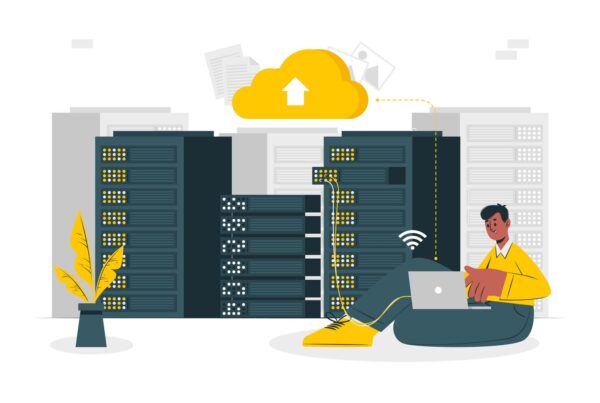Web hosting providers play a critical role in your whole online operation, and you should know what you are getting into before you hire one. There are various types of hosting services available including shared, dedicated, managed, co-location, virtual hosting services and more, but here we will be dealing specifically with the disadvantages of using a shared web hosting provider.
Now while most people are not familiar with the differences that exist with many of these hosting services, it is important to have some basic knowledge about their operations. This will allow you to make the right choice for your particular situation. This is even more critical if you are really serious about establishing your business online for the long haul.
People are always looking for operations that are easy to set up, can be done quickly, and is cheap. Because of this mentality, they are more attracted to shared web hosting providers, as they all share these common traits. This type of hosting is the most popular on the internet and with good reason, it is the cheapest. Most of these providers can be accessed for less than $5 per month, so they attract a lot of clients.
Shared web hosting is where a lot of websites are being hosted on the same server. Now while they provide a simple way to set up, and you do not need to bother yourself with a lot of technical knowledge because all of that would be taken care of by the provider, there are some major concerns that you should be aware of.
Here are some disadvantages that you and your website could be exposed to with a shared web hosting provider:
(1). slower Server Response – Websites on a shared web hosting service could experience slower server response time because of the number of sites being hosted on the same server. More experienced and reputable companies may address this issue by monitoring the performance of their server, and could add new web servers if necessary. This would allow them to continue providing good service to their clients.
(2). Risk Of Cross Contamination – Because there are so many sites being hosted on the same server there is always the risk of cross contamination. If one website on the server should become infected by a virus, or exposed to fraudulent behavior, whether by accident or willfully, then your site could become exposed as well. Many people on the internet have experienced some of these headaches first-hand.
(3). Targeted By Spammers – These type of web hosting providers are more targeted by spammers because their security measures might be inadequate, or not as effective as other more dedicated providers. This is not to say that you will not be exposed by these elements with other companies, but the risk here could be much higher.
(4). Server Overload Issues – Depending on the web host, a server can host hundreds or even thousands of websites because they are equipped with powerful, highly sophisticated computers. However, if the number of sites hosted on a particular server exceed the safe operating limit, and it gets overloaded, you will begin to experience a slower response. This could lead to more complications and a complete shutdown if not addressed promptly.
(5). Risk Of Compromising Your Personal Security – The greatest risk that you face with a shared web hosting provider is the risk of compromising your personal identity and security. There are a lot of undesirable individuals on the internet just looking for an opportunity to mess up your life, and they target places where the security systems are more relaxed. Shared web hosting providers are more prone to these type of activities than other more dedicated hosting services.
Probably one of the biggest problem with using a shared web hosting provider is that you as a customer only have restricted access to the server. If you do not use or need to use custom web applications, or other sophisticated programming or installations now then this would be fine. But you may eventually need all of these services later on, and you want to make sure that your hosting provider have the technical support in place when that need arise.








